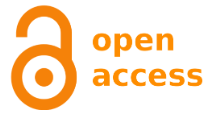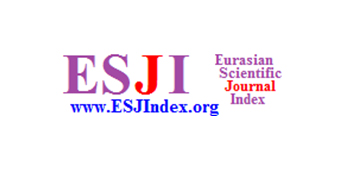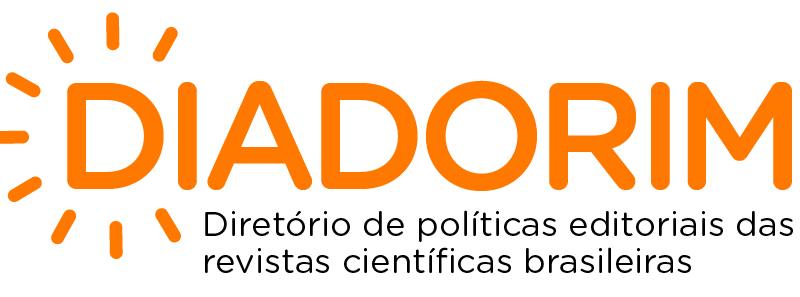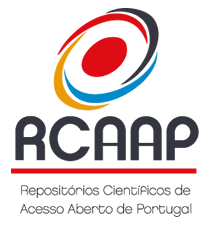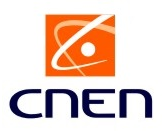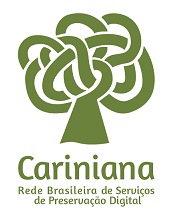Towards an Ecological Approach in Telecollaboration
DOI:
https://doi.org/10.5433/2237-4876.2021v24n3p59Palavras-chave:
telecollaboration, online foreign language teaching and learning, ecological approachResumo
In recent years, telecollaboration has been allowing the practice of foreign languages as well as the contact between people from different countries and cultures (O'DOWD, 2003, 2013, 2016, 2018; TELLES, 2015a, 2015b). According to O'Dowd (2013, 2018), telecollaboration refers to the use of online technologies in the context of language education between students who are geographically dispersed. This study aimed at discussing, through an ecological approach, which focuses on the relationship of people with the environment, different aspects that influenced the participants' interaction in the telecollaborative sessions. For the interpretative analysis, data from telecollaborative sessions, experience reports, interviews and reflective diaries were included. The data analysis revealed five aspects that influenced the participants' interaction in the telecollaborative sessions, among them "restricted language abilities", "concern because the telecollaborative session was being video-recorded" and "technical problems". In order to deal with various contexts (e.g. online and face-to-face classes), we suggest that different approaches are needed, and the ecological approach, used in this study, seems to be one of them.Downloads
Referências
BENEDETTI, A. M. Aplicaciones potenciales del contexto teletandem para el aprendizaje de lenguas extranjeras. Moderna Sprak, v. 104, n. 1, p. 42-58, 2010.
BORGHETTI, C.; BEAVEN, A.; PUGLIESE, R. 2015. Interactions among future study abroad students: exploring potential intercultural learning sequences. Intercultural Education, v. 26, n. 1, p. 31-48, 2015.
BRAMMERTS, H. Tandem language learning via the internet and the International E-Mail Tandem Network. In: LITTLE, D.; BRAMMERTS, H. (Eds.), A guide to language learning in tandem via the internet. Dublin, Trinity College, CLCS Occasional Paper, p. 9-22, 1996.
BRAMMERTS, H. Autonomous language learning in tandem: the development of a concept. In: LEWIS, T.; WALKER, L. (Eds.), Autonomous Language Learning in Tandem. Sheffield, Academy Electronic Publications Limited, p. 27-36, 2003.
BURBULES, N. C. Rethinking dialogue in networked spaces. Cultural Studies—Critical Methodologies, n. 6, p. 107-122, 2006.
BYRAM, M. Teaching and assessing intercultural communicative competence. Clevedon: Multilíngual Matters, 1997.
BYRAM, M. The Cultnet Intercultural Citizenship Project. In: O'DOWD, R.; LEWIS, T. (Eds.), Online intercultural exchange: policy, pedagogy, practice. New York, Routledge, p. 256-262, 2016.
DÖRNYEI, Z. Research methods in Applied Linguistics. Oxford: Oxford University Press, 2007.
DUFF, P. Case study research on language learning and use. Annual Review of Applied Linguistics, v. 34, p. 233-255, 2014.
FURSTENBERG, G. The Cultura exchange program. In: O'DOWD, R.; LEWIS, T. (Eds.), Online intercultural exchange: policy, pedagogy, practice. New York, Routledge, 2016. p. 248-255.
HAUGEN, E. The ecology of language. In: FILL, A.; MÜHLHÄUSLER, P. (Eds.), The Ecolinguistics Reader: language, ecology and environment. London: Continuum, 2001. p. 57-66.
HELM, F. Facilitated dialogue in Online Intercultural Exchange. In: O'DOWD, R.; LEWIS, T. (Eds.). Online intercultural exchange: policy, pedagogy, practice. New York: Routledge, 2016. p.150-172.
KENSKI, V.M. Formação/ação de professores: a urgência de uma prática docente mediada. In: PIMENTA, S. G.; ALMEIDA, M. I. (Orgs.). Pedagogia universitária: caminhos para a formação de professores. São Paulo: Cortez, 2011. p. 213-228.
KERN, R. Technology as Pharmakon: the promise and perils of the internet for foreign language education. The Modern Language Journal, n. 98, p. 340-357, 2014.
KRAMSCH, C.; STEFFENSEN, S. V. Ecological perspectives on second language acquisition and socialization. In: DUFF, P.A.; NHORNBERGER, N.H. (Eds.). Encyclopedia of language and education: language socialization. Berlin, Springer Verlag, p. 17-28, 2008.
LEONE, P.; TELLES, J. A. The teletandem network. In: O'DOWD, R.; LEWIS, T. (Eds.). Online intercultural exchange: policy, pedagogy, practice. New York: Routledge, 2016. p. 241-247.
LOPES, Q. B.; FRESCHI, A. C. Potenciais sequências de aprendizagem intercultural no teletandem: a importância da mediação. Revista do Gel, v.13, n.3, p. 49-74, 2016.
MALINOWSKI, D; KRAMSCH, C. The ambiguous world of heteroglossic computer-mediated language learning. In: BLACKLEDGE, A.; CREESE, A. (Eds.), Heteroglossia as Practice and Pedagogy. Dordrecht, Springer, p. 155-178, 2014.
MARCUSCHI, L.A. Análise da conversação. São Paulo: Ática, 1997.
MAXWELL, J.A. Qualitative research design: an interactive approach. Thousand Oaks: Sage, 1996.
O'DOWD, R. Understanding "the other side": Intercultural learning in a Spanish-English e-mail exchange. Language Learning & Technology, v. 7, n. 2, p. 118-144, 2003.
O'DOWD, R. Telecollaboration and CALL. In: THOMAS, M.; REINDEERS, H.; WARSCHAUER, M. (Eds.). Contemporary computer-assisted language learning. London: Bloomsbury Academic, 2013. p. 123-14.
O'DOWD, R. Learning from the past and looking to the future of Online Intercultural Exchange. In: O'DOWD, R.; LEWIS, T. (Eds.). Online intercultural exchange: policy, pedagogy, practice. New York: Routledge, 2016. p. 273-294.
O'DOWD, R; LEWIS, T. Online intercultural exchange: policy, pedagogy, practice. London: Routledge, 2016.
O'DOWD, R. From telecollaboration to virtual exchange: state-of-the art and the role of UNICollaboration in moving forward. Journal of Virtual Exchange, v. 1, p.1-23, 2018.
RODRIGUES, D. G. A articulação língua-cultura na coconstrução da competência intercultural em uma parceria de Teletandem (português/espanhol). 187 f. São José do Rio Preto, SP. Dissertação de Mestrado. Universidade Estadual Paulista - UNESP, 2013.
SOUZA, M. G. Teletandem e mal-entendidos na comunicação intercultural online em língua estrangeira. 172 f. São José do Rio Preto, SP. Tese de Doutorado. Universidade Estadual Paulista - UNESP, 2016.
TELLA, S.; MONONEN-AALTONEN, M. Developing dialogic communication culture in media education: integrating dialogism and technology. Helsinki, Media Education Publications 7, 1998.
TELLES, J. A.; VASSALLO, M. L. Foreign language learning in-tandem: Teletandem as an alternative proposal in CALLT. The ESPecialist, v. 27, n. 2, p. 189-212, 2006.
TELLES, J. A. Teletandem: Transculturalidade nas interações on-line em línguas estrangeiras por webcam. Research Project. Universidade Estadual Paulista, Brazil, p. 1-24, 2011.
TELLES, J. A. Learning foreign languages in teletandem: Resources and strategies. DELTA - Revista de Estudos em Linguística Teórica e Aplicada v. 31, n.3, p. 603-632, 2015a
TELLES, J. A. Teletandem and performativity. Revista Brasileira de Linguística Aplicada, v.15, n.1, p. 1-30, 2015b.
THORNE, S. L. Pedagogical and praxiological lessons from Internet-Mediated Intercultural Foreign Language Education Research. In: BELZ, J.A.; THORNE, S. L. (Eds.). Internet-Mediated Intercultural Foreign Language Education. Boston: Heinle & Heinle, 2006. p. 2-30.
VAN LIER, L. The Ecology and Semiotics of Language Learning: a Sociocultural Perspective. Dordrecht: Kluwer Academic Publishers, 2004.
VASSALLO, M. L.; TELLES, J. A. Foreign language learning in-tandem: Theoretical principles and research perspectives. The ESPecialist, v. 27, n. 1, p. 83-118, 2006.
VASSALLO, M. L. Teletandem ou tandem tele-presencial? In: TELLES, J. (Org.). Teletandem: um contexto virtual, autônomo e colaborativo para a aprendizagem de línguas estrangeiras no século XXI. Campinas: Pontes, 2009. p. 185-197.
VELOSO, F. S; ALMEIDA, V. B. A fala facilitadora de dois interagentes no contexto de aprendizagem de LE no Teletandem? TELLES, J. (Org.). Teletandem: um contexto virtual, autônomo e colaborativo para a aprendizagem de línguas estrangeiras no século XXI. Campinas: Pontes, 2009. p. 149-168.
VYGOTSKY, L. S. Thought and language. 2.ed. Cambridge: MIT Press, 1986.
VYGOTSKY, L. S. Mind in society: the development of higher psychological processes. Cambridge, Harvard University Press, 1978.
WARSCHAUER, M. Computer-mediated collaborative learning: theory and practice. Modern Language Journal, v. 81, n. 3, p. 470-481, 1997.
Downloads
Publicado
Como Citar
Edição
Seção
Licença
Copyright (c) 2022 Signum: Estudos da Linguagem

Este trabalho está licenciado sob uma licença Creative Commons Attribution-NonCommercial-NoDerivatives 4.0 International License.
Signum: Estudos da linguagem, publica seus artigos licenciados sob a Licença Atribuição-NãoComercial-CompartilhaIgual 4.0 Internacional. Esta licença permite que terceiros façam download e compartilhem os trabalhos em qualquer meio ou formato, desde que atribuam o devido crédito de autoria, mas sem que possam alterá-los de nenhuma forma ou utilizá-los para fins comerciais. Se você remixar, transformar ou desenvolver o material, não poderá distribuir o material modificado.





